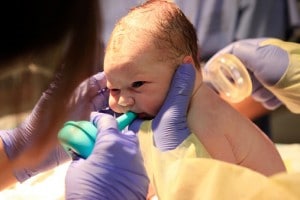Water Births Pose Risks to Mothers and Children

Water births have become a popular trend among expecting parents, often promoted as a more natural and gentle form of childbirth. While many women have experienced successful water births, there are serious dangers that parents should consider when making this important decision.
During a water birth, it is vitally important for the baby to be brought to the surface of the pool in a timely manner. Prolonged immersion can lead to various complications. The baby’s lungs may fill with water if he begins inhaling while still immersed, causing asphyxiation or drowning. While there have been no official studies on the frequency of water birth drowning, many physicians reportedly advise against the procedure due to the risk.
A contaminated tub can increase the risk of infection
Infection also potentially endangers mothers and babies during water births. This risk stems from two possible scenarios:
- Contamination from the mother’s waste. During a water birth, the mother remains in the water throughout the labor process. This creates a high possibility for fecal matter to enter the water of the pool. As explained by an article in Parents magazine, the baby may inhale the water, causing ingestion of dangerous bacteria.
- Contamination from improper sterilization. Birthing tubs should be properly cleaned and sterilized before and after each use. Failure to adequately maintain the tub can lead to contamination, potentially causing infection to the mother and baby.
At-home births experience a higher rate of birthing injuries
Though some hospital and birthing centers offer water births, most of these procedures are completed within a home setting. As with any at-home birth, significant risks exist for the mother and the infant. This is largely due to the lack of emergency services available for crisis situations. Should complications arise in a hospital setting, there are emergency systems in place to quickly address them. From operating rooms to the neonatal intensive care unit, these facilities are equipped to handle emergencies. A home environment does not have the same amenities. When emergencies occur, the midwife or attending obstetrician may have to wait on an ambulance, which can ultimately prove fatal for the mother and/or the child.
Water births can be risky, particularly in situations where attending physicians and midwives fail to adequately meet their duties. If your family was impacted by a water birth injury, rely on the experienced South Carolina birth injury lawyers of McGowan, Hood & Felder to aggressively advocate for the compensation your case deserves. Schedule an appointment via our site, or call us today at 888-302-7546.